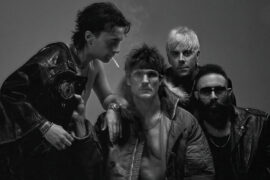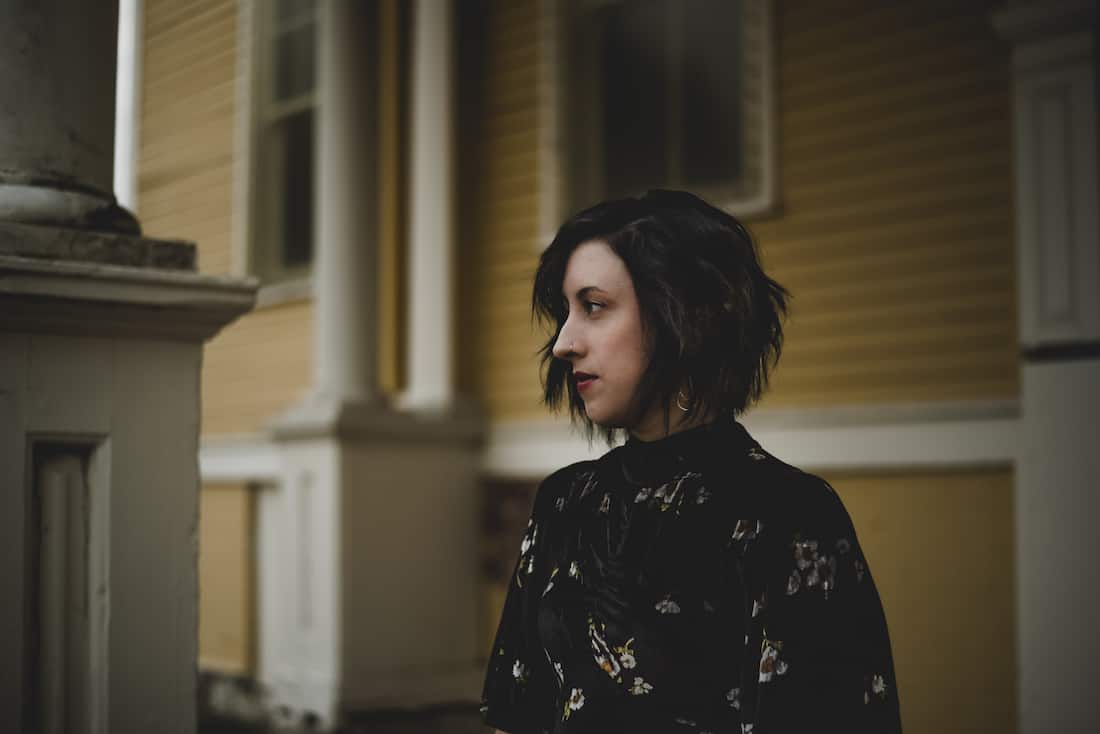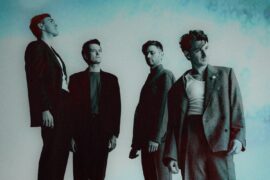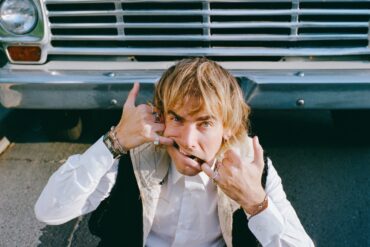Los Angeles-based, Orange County-born, singer/songwriter Launder chats with Atwood Magazine about growing up and the resurgence of shoegaze, and candidly reflects on the vision behind his debut album, ‘Happening.’
Stream: ‘Happening’ – Launder
A cinematic and breathtaking explosion of a debut, Launder’s Happening is an ode to maturity on both artistic and personal bases.
With breathy vocals and reverbed guitars tied together with a thin string of synthy languor, Launder, born John Cudlip, has channeled his creativity into every nook and cranny of his music in the wake of his sobriety amidst the pandemic.
Featuring some of his longtime friends and colleagues, from DIIV’s Zachary Cole Smith and Day Wave’s Jackson Phillips, to Soko and Sonny DiPerri (co-producer, engineer, and mixer for My Bloody Valentine, Ice Nine Kills, etc.), Launder expresses heartfelt gratitude to those who’ve helped him with his dream and made it into a reality. Of course, writing a full-length album is easier said than done, especially when it’s your first, but Cudlip is fully confident in his long-awaited project and his collaborators. Magnetic, thrilling, and cunningly produced, it truly is no surprise as to why he, as well as the rest of us, are on the edge of our seats waiting for the record’s launch.
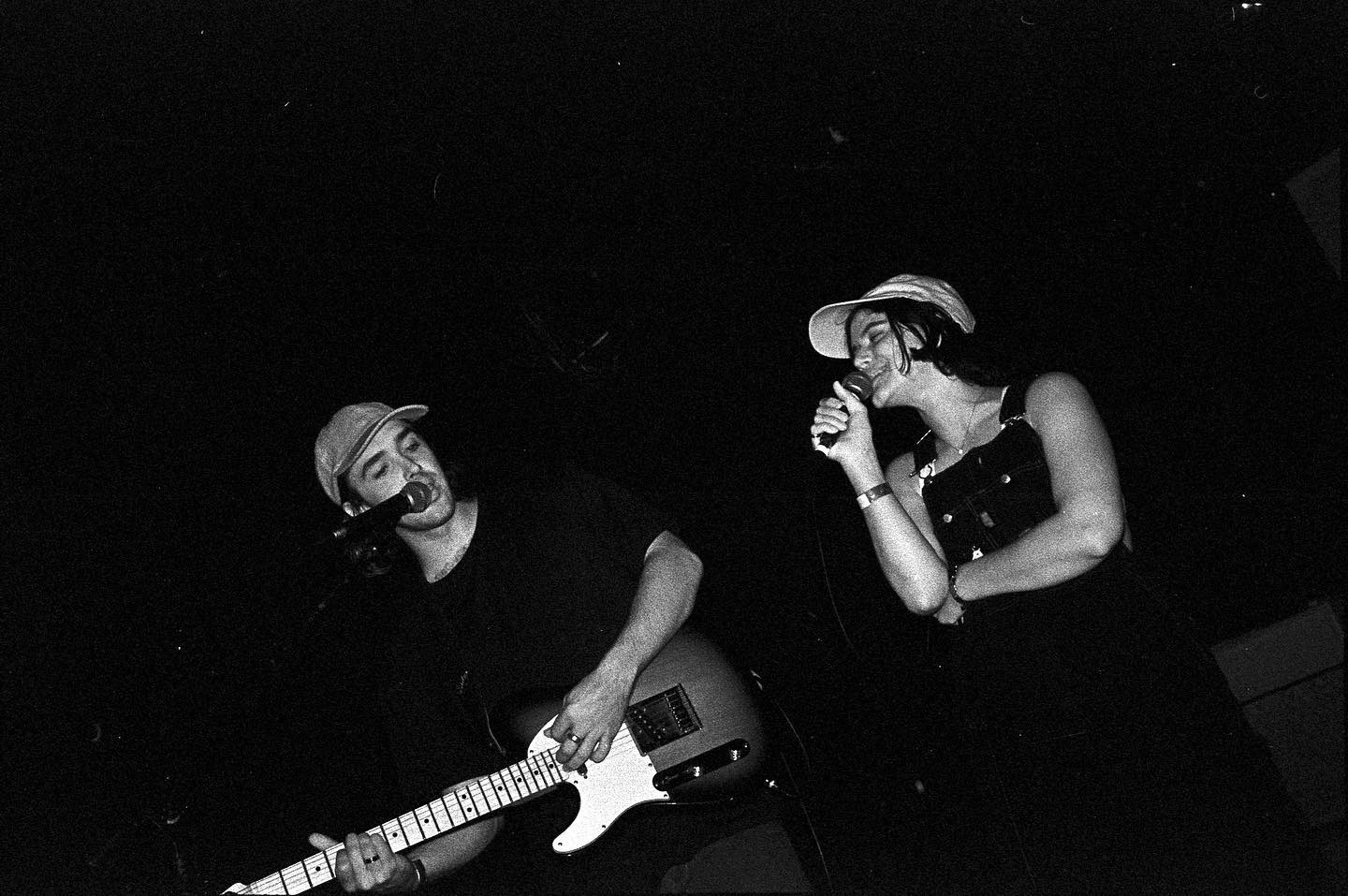
Majorly inspired by the skate scene in Southern California growing up, Cudlip picked up his first guitar in late high school and fell in love with music from there. With a right-handed acoustic guitar strung backward, the left-handed musician made do with his resources, developing a deep affinity for the craft and finding himself immersed in a complex world of pedals, white noise, and cascading distortions. Not later after, he went and purchased his first left-handed electric guitar. A proud self-taught guitarist, he inspiringly details:
I think it’s pretty easy just to pick up a guitar and then look up some bands or songs that you like, and just learning how to play those songs teaches you a lot.
Ever since then, he’s released singles here and there, which were eventually compiled into the debut EP titled Pink Cloud in 2018. A five-song collection of vaguely upbeat, dreamy rock anthems, permeated by a shimmering yet somber undercurrent, his first release already made a strong statement, serving as a more-than-excellent homage to the big names in shoegaze and post-punk. This shimmering somberness has found its way to Launder’s most recent project, keeping his sound uniquely distinct, but still pushing his artistic boundaries and showing his maturity on a profound level.
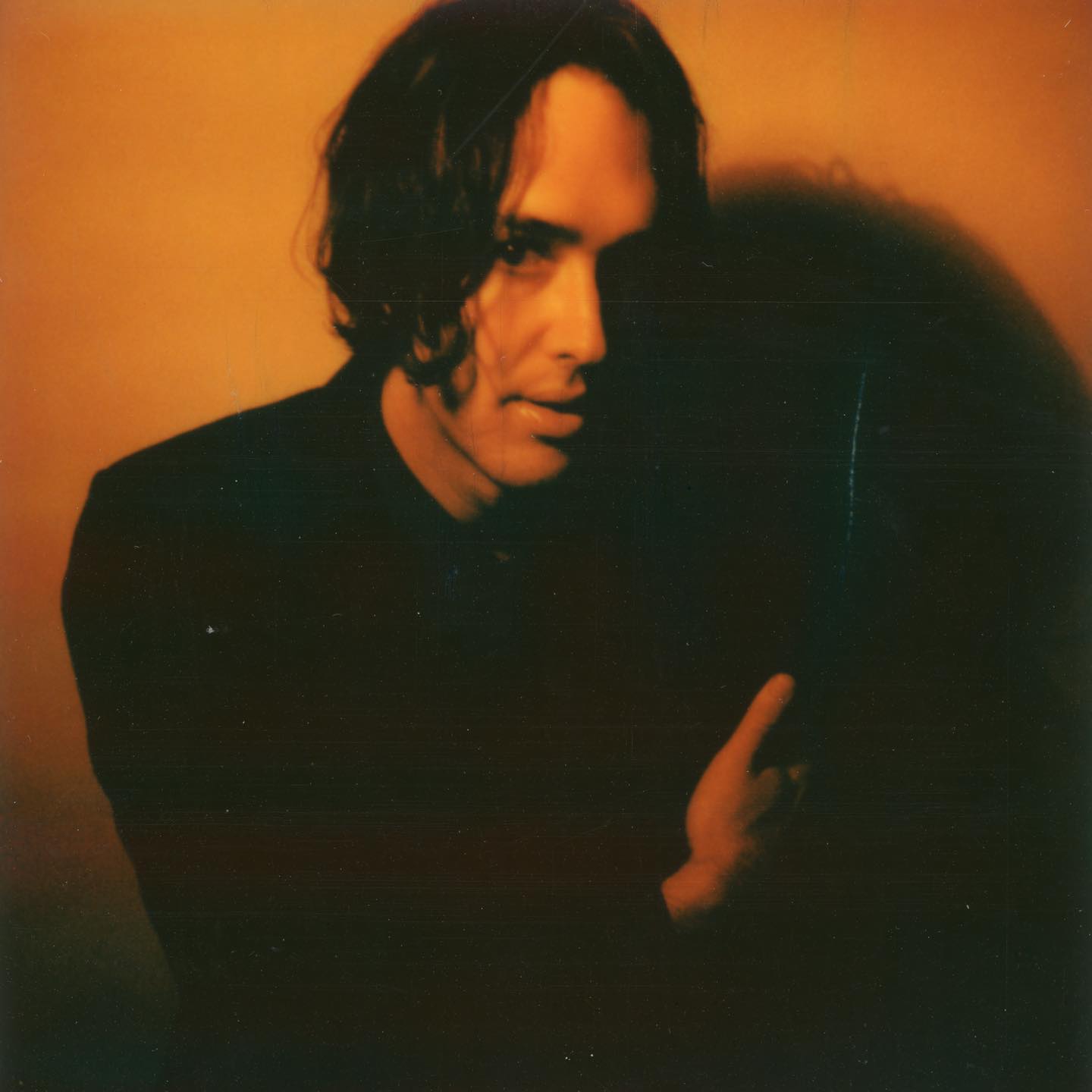
Nearly three years and sixty demos later, he has signed with his first label at Ghostly International and excitedly awaits the release of his debut album, Happening, on July 15th. Acclaimed as a compilation of “timeless… cathartic, [and] tender, indie rock [tracks], informed by modern and prudent self-reflection,” this record is sure to be pure ear-candy to those captivated by the otherworldly, the gauzy, and the nostalgic.
Atwood Magazine got the opportunity to sit down with Launder just days before his record’s launch. A down-to-earth and soft-spoken, but ever-passionate, musician, we examined his humble beginnings, creative process, and the artistry behind the album via Zoom. Powerful both lyrically and sonically, Launder deeply cuts into his inner world, and the bold marking of his creative footprint in the industry is, without a doubt, Happening.
— —
:: stream/purchase Happening here ::
A CONVERSATION WITH LAUNDER
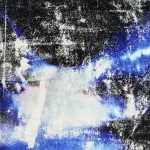
Atwood Magazine: Your first full-length record’s out in a few days, do you have any specific thoughts, feelings, or concerns?
Launder: No concerns, just… I’m excited! I’m ready for it to come out. It’s been a long time coming.
And I know you’ve probably gotten this question a million times, but what does Launder mean? Who is he, and how is he different from John Cudlip?
Launder: I think Launder is just an extension of me; it’s a personal project. But at the same time, I collaborate too. I don’t feel like it’s too much different than me, since I try to keep it pretty personal. The dictionary definition of “launder” is to wash clean, and I felt like starting the band was like a fresh start to something new.
That’s cool, it fits well with the theme of this album! So how did you get started in music, and what influenced you?
Launder: I always have felt a deep connection to music since I was young. I grew up skateboarding, so I think a lot of late ’90s and early 2000s skate videos influenced me. There was a lot of Dinosaur Jr. and Pavement. Bands like that introduced music to me at a young age. It took me a little longer to pick up a guitar because I was left-handed, so I had to wait for the end of high school. One of my friends sold me a right-handed guitar for like, $20, and then I just strung it upside down and taught myself how to play it. I didn’t really see it as a career until I was maybe 24 or 25.
And of course, as someone who also grew up in OC, I want to know if any experiences growing up here have influenced your music in any way! Or even where you are now in LA?
Launder: Yeah, I think some things point back to it. Some of the lyrics are about growing up there and fond memories of being younger. There was a time when there was a strong music scene, and I’d meet people that would play in bands. A lot of times when I write a song, I’ll name the demo after whatever street I’m working on. I was writing down in OC during the pandemic for a little bit, and I think the last song on the album, “Lantern,” was kind of an homage to Dana Point.
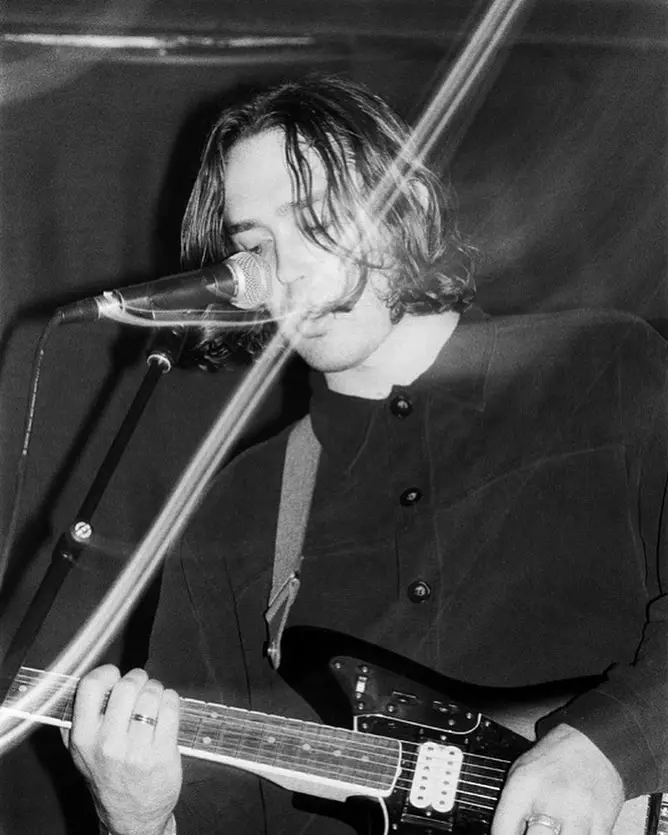
It’s funny you mention the demos since I read that it took you about 60 demos and almost 3 years to finish the album. Would you say the pandemic played a role in having it take this long, or was it more a matter of trying to perfect it as much as you could and taking your time to do so?
Launder: I think it would have taken that long regardless of the pandemic. It was just a lot of work, and I pictured the way the record would sound and everything. It was sort of hard to pull off with mainly myself working on it, and I wanted enough songs that I felt strongly about being on there. I’m not going to just put a song on the record just because I have a song, I want it to be something special to me. It’s a self-indulgent record, where I was making something to make myself happy.
I’m not going to just put a song on the record just because I have a song; I want it to be something special to me.
Since you had an idea of what the album would sound like, did you have a hard conceptualization of what each track would entail before you started it?
Launder: There were rough ideas since I made the demos at home. I could only get so many layers of guitar, but I guess I did have an idea of what I wanted each song to sound like. With how much layering there was, I think it came together rehearsing live with the band. Instead of having to rerecord a whole section, I just talked to the band and changed things as I went, like speeding up certain parts, changing the drums, and adding a couple of bass fills. It gave a foundation for each demo. At that point, I had a pretty good idea of what I wanted each song to do.
Because you did work with a lot of other people, as far as the creative process went, to what degree did you feel like you tailor the project to the person you were working with? Did you feel like something had to sound a certain way to fit someone else?
Launder: I feel like anyone else who comes along is there to help me out with the project, and it’s almost the other way around. Usually, I feel like they’re trying to make it sound like Launder, even though it’s still a pretty new band developing a sound. But, there’s a foundation there. Everyone I work with has been pretty cool, and there haven’t been any butting heads. I try to work with people whose tastes I trust. Maybe if I was working with someone random, I would have had to, but I don’t work with that many people.
So for the most part, you generally stick with the people who you're familiar with and whom you've worked with before. Are there any new people featured on this album?
Launder: We’ve got a new drummer for this album, Bryan DeLeon, and Nathan Hawelu, who’s a new guitar player. But, I mean, I’ve been friends with both of them for some time. Nathan’s from Huntington Beach, and I’ve known him for around eight years. I always knew he was a great guitar player, and he’s a knowledgeable kid. I knew Bryan was an excellent drummer too. There’s still the same bass player, who’s my friend, Chase Meier. That’s the band, and the record definitely wouldn’t sound the way it does without them. Once again, I trust all of them, you know?
What’s your favourite track on the album?
Launder: It depends on what mood I’m in. I like the song “Rust” a lot. It starts acoustic and vocal, and it sort of just builds through. That was one of those songs that just came together. I just had an idea at 11 PM while playing guitar in this apartment with no insulation. The vocals are pretty and they’re in a different register. I worked all through the night on that song and had a good demo by the morning! I like that song a lot, but I like all the songs on the record.
And, I know a lot of people describe your sound as very My Bloody Valentine, Slowdive, Sparklehorse-esque, in the realm of that 90s post-punk/shoegaze era. Are there any records, artists, or eras that particularly influenced you in the making of Happening? Throughout your life even?
Launder: Most of the music I listen to is from the 90s, just because, I guess that’s when I was growing up. I wouldn’t even say it’s a nostalgic thing. I think people in the 90s were a little more focused on their craft; they weren’t as distracted with phones and stuff, and, for the most part, they knew how to play guitar. I was listening to The Smashing Pumpkins a lot during the pandemic, especially Siamese Dream when I was making this record, so I think that influenced it. But yeah, the stuff you mentioned and all the adjacent bands were what I listened to. It only makes sense that that’s how the record would sonically come out, and I feel like there are some moments where you can hear it.
Speaking of that, I’m sure you’re aware that there’s a whole post-punk and shoegaze revival thing circling TikTok and Gen Z kids right now. How do you feel about it?
Launder: It feels weird. I watch TikTok, and I see it. It’s cool, I can’t get mad at it. I think it’s good that kids are picking it up, and I’m not trying to gatekeep shoegaze or anything. I think there was a first time that I listened to these bands, and now there’s a first time other kids are listening to these bands, which is good! I feel good about it, as long as people are making music for the right reasons and are true to themselves. I like TikTok because you can see through the BS quickly on there. I have been hearing a lot of these post-punk bands that are sort of just a derivative of one another over and over again, which is kind of weird. They’re kind of copying each other with this weird, spoken word-like post-punk. I was over in London for a while, and a lot of the bands that are doing well are just doing that. But, I did find a lot of cool bands that weren’t doing that, so there’s there is hope!
Do you see yourself dedicating a chunk of time to the studio or touring over the next few months or later this year? What can we expect coming up, if anything at all?
Launder: Definitely. I’m focused on this record and touring right now. I want to try to tour as much as I can and play as many shows as possible just to get a feel for playing these songs in front of an audience. It’s all the new stuff. And from there, I’ll have more inspiration and a better idea of what direction I want to go next.
Since we’re running short on time, I think this is a very fitting final question considering the theme of this album. From the release of your very first song until now, how do you think you’ve changed/grown as an artist and as a person?
Launder: I’ve changed so much since I started the project seven years ago. I learned so much behind the scenes, about my instrument, how to play bass better, how to record better, a little more music theory, and just different guitar tunings that I could inspire myself with. It’s night and day. Luckily, I had people to help me when I started that were already aware of a lot of those things and taught me what they knew. I’ve become a lot more self-reliant, and it’s nice to just be able to sit down by yourself and write a song that you feel proud of. But at the same time, I still think the songs on the EP are good, and I still want to play those live. I’m so proud of the old work and I’m proud of the new work. It’s just a different approach, and it was something that I had to get out of my system, at least for now, to make a record like this.
— —
:: stream/purchase Happening here ::
Stream: ‘Happening’ – Launder
— — — —

Connect to Launder on
Facebook, Twitter, Instagram
Discover new music on Atwood Magazine
? © Cameron McCool
:: Stream Launder ::

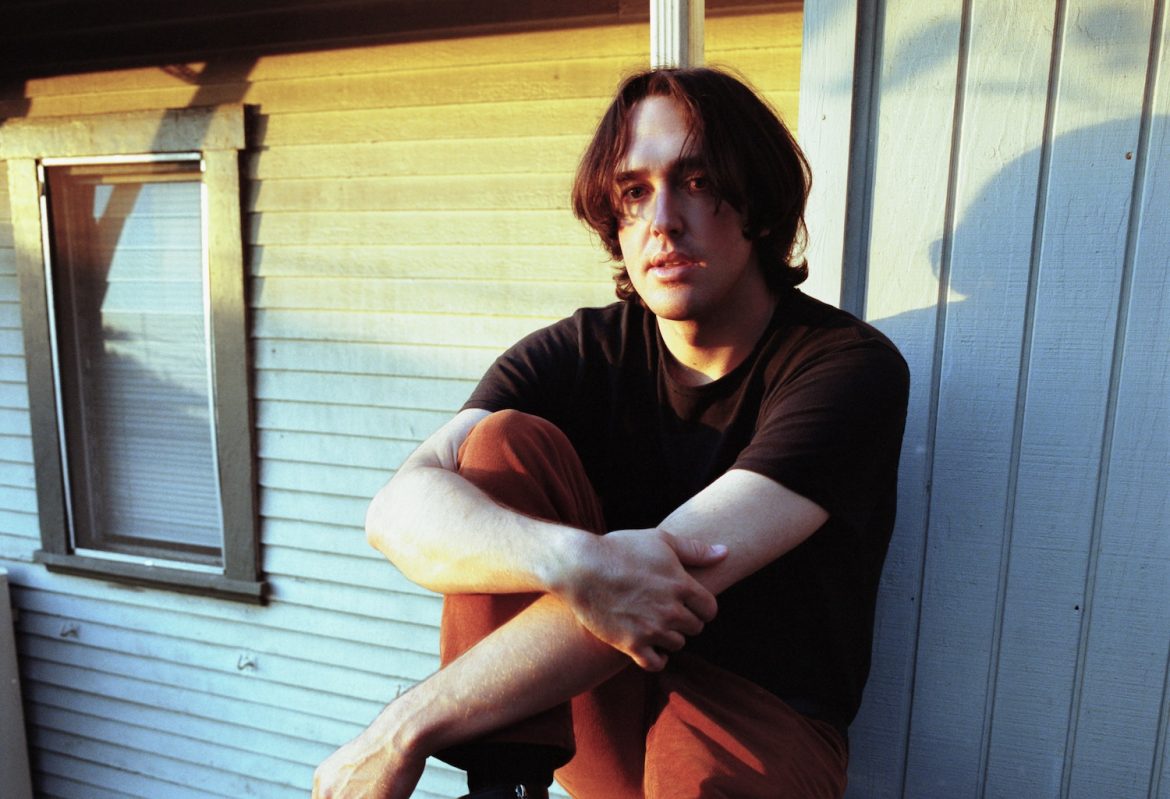
![Manuel the Band [L-R]: Matt Kalin, George Madrid, Brandon Charlesworth, Manuel Grajeda, Kevin Nowacki, Richard Fernandez © Cesar Sanchez](https://atwoodmagazine.com/wp-content/uploads/2021/11/Manuel-the-Band-©-Cesar-Sanchez-270x180.jpg)


